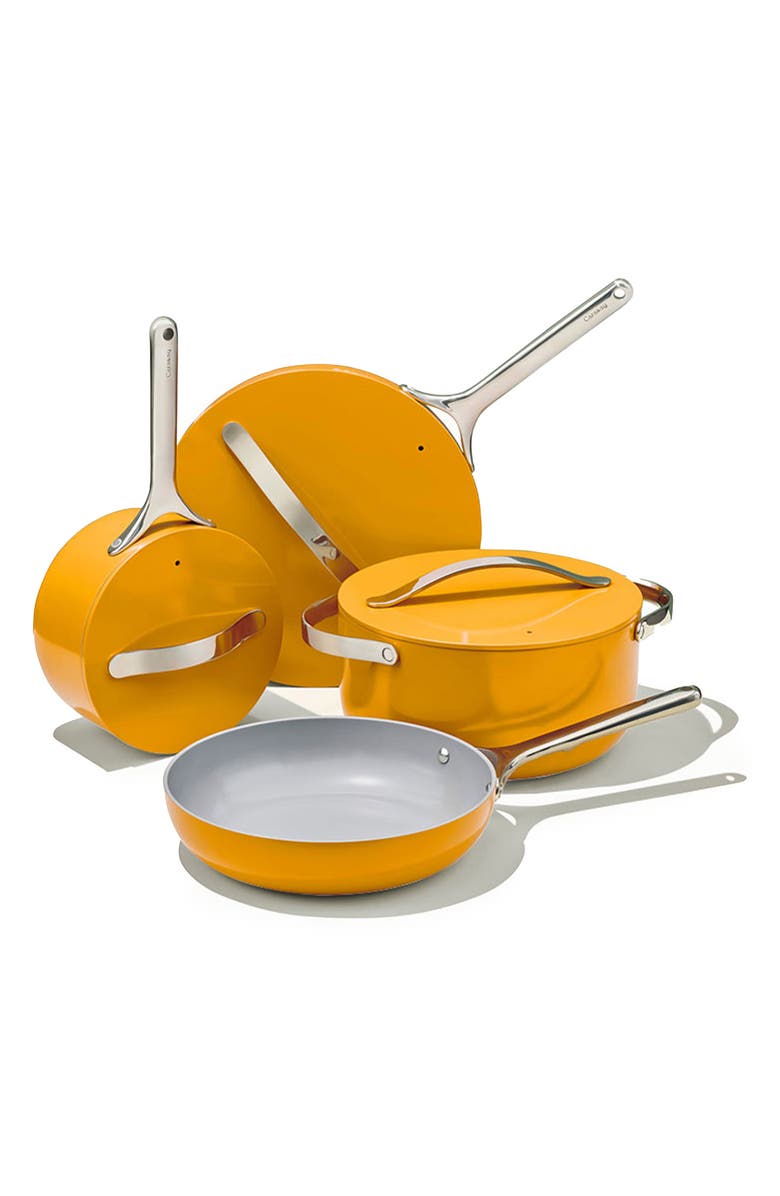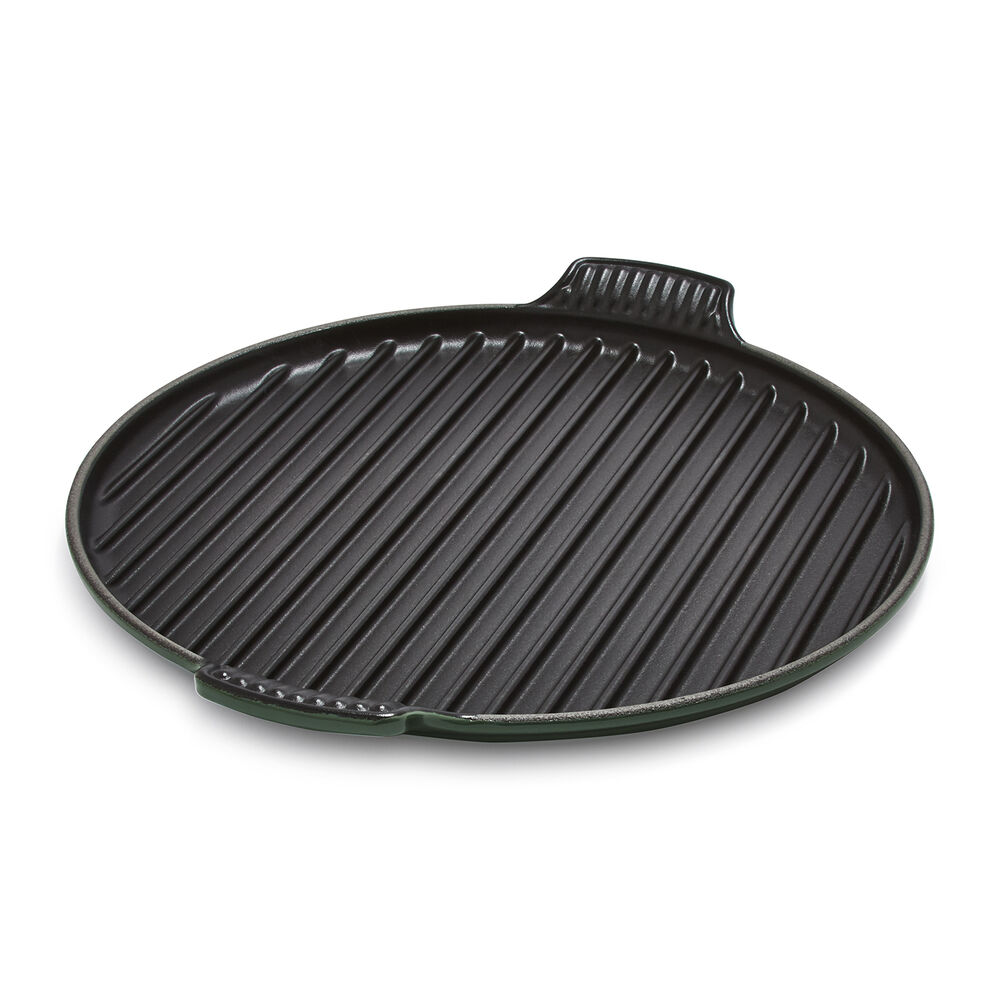Calphalon® Premier™ Space Saving Hard Anodized Nonstick 10-Piece Cookware Set
Save 30% more space in the kitchen with the Calphalon Premier™ Space Saving Hard Anodized Nonstick Cookware. Designed for stacking and nesting in any order, the unique cookware design and flat glass lids (lids included with select items) are ideal for optimal storing.
Outfit your kitchen with the small footprint, stellar performance and quick, even heating of the Calphalon Premier Space Saving Hard Anodized Nonstick Cookware. Its clever design allows stacking and nesting in any order to save storage space.
- Calphalon’s Premier Space Saving Hard Anodized Nonstick 10-Piece Cookware Set features cooking vessels that stack small to save you 30% more storage space while delivering big on cooking convenience and performance
- Same diameter cookware conveniently stacks and nests on top of each other in any order
- Hard anodized aluminum body delivers quick, even heating
- Metal utensil safe nonstick cooking surface for easy food release and quick cleanup
- Suitable for use with most stove types, except induction
- Oven-safe up to 450 degrees F
- Sturdy stainless steel handles
- Covered cookware pieces feature space-saving flat glass lids
- Set includes:
- 8″ fry pan
- 10″ fry pan
- 2.5 qt. saucepan with lid
- 3.5 qt. saucepan with lid
- 3 qt. sauté pan with lid
- 6 qt. stock pot with lid
- Aluminum, stainless steel, and tempered glass construction
- Dishwasher safe
- Lifetime manufacturer’s warranty
- Imported
- skuId : 62494465
Additional information
| Product Weight lb | 23.26 |
|---|






by Kin
We bought this set on Black Friday, so we’ve been using it for about 5 months now and I still love cooking these pots and pans. The fact that they are stackable makes me so happy because it keeps my cabinet far more organized. After I cook, they are effortless to clean. While I have put the lids through the dishwasher, I still prefer to wash the pots and pans by hand. This is just a great set and an outstanding product.
by Kim
She likes it, much heavier than her previous cook ware.
by Duane
this was given as a wedding gift, and they love them.
by Janetta
I had a large set of Kitchenaid stainless that I loved cooking with, then we made a short-term move to a small apt. Nothing fit in the cabinets until I found these. High-quality pans that we love cooking with AND they allowed me to have the whole set in a small cabinet.